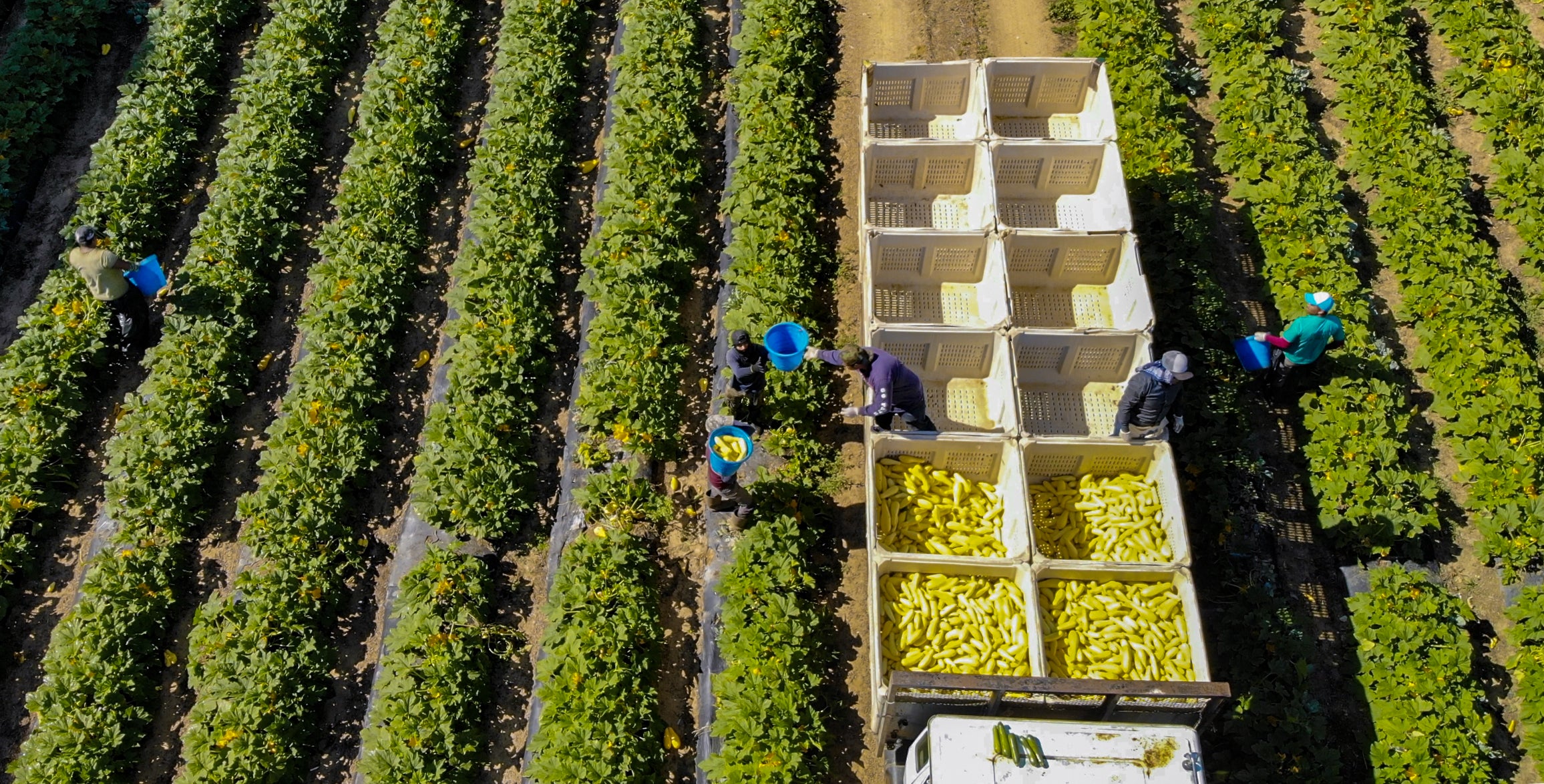
Dangerous health effects and heat-related illnesses result when the body is unable to maintain a safe core temperature through measures like sweating. Symptoms range from mild effects to severe illness and even death.
The summer of 2023 has been one of record-breaking heat with devastating consequences for people, crops and livestock. As the climate continues to warm, heat wave intensity, frequency and duration will increase across the globe.
U.S. farmworkers — invaluable, often unrecognized contributors to food production and the trillion-dollar agricultural economy — are at exceptionally high risk for heat-related health consequences. A report from Environmental Defense Fund and La Isla Network finds that the average U.S. agricultural worker is currently exposed to an estimated 21 unsafe working days due to heat each May-September. Crop workers are also 20 times more likely to die from heat-stress-related illness than civilian workers in the U.S.
Farmworkers face intersecting health risks
The threat of heat stress is not felt equally. For many U.S. farmworker communities, risks of heat illness build upon other existing vulnerabilities, including low wages and poverty, lack of health insurance, immigrant status, language barriers and the nature of farmwork itself.
More than half of farmworkers are immigrants, a significant portion of whom identify as non-English speakers. In addition, agricultural workers often don’t have the same regulatory protections as other categories of workers. This can make it more difficult for farmworkers and their family members to navigate U.S. systems and find support.
Additionally, farmworkers are among the lowest-paid workers in the U.S. economy, often lacking access to minimum wage, overtime pay and adequate housing. Around one-third are living with a family income that falls below the poverty line, and fewer than half have access to health insurance, all of which can be linked to poor health outcomes.
Farm labor itself can pose a threat to worker health beyond heat exposure. Many farmworkers are paid based on productivity rather than an hourly wage. This along with overall low wages can incentivize overworking under dangerous conditions. Plus, farmworkers are exposed to a variety of occupational and environmental hazards on the job, including pesticides and wildfire smoke, that can exacerbate the health impacts of extreme heat on farmworker communities.
Ways to prevent heat-related illness
Some of the most effective and immediate measures for protecting farmworkers from heat are water, rest and shade. If provided sufficiently throughout work hours, these measures can be effective at reducing heat exposure and preventing illness. Additional practices, such as acclimatization to slowly get bodies used to higher temperatures and adjustment of work hours to cooler times of day, can offer additional protection for outdoor workers.
However, without widespread enforceable standards to implement these practices, preventative measures are too often implemented piecemeal. More action is needed.
A federal heat standard to protect farmworker health
A federal heat standard could provide much-needed protection for farmworkers across the U.S. Several state-level standards requiring water, rest, shade and training have been implemented. However, these standards only exist in a few states and require strengthening.
A federal standard could expand such protections across the country to protect farmworker health in the face of a changing climate.
OSHA has indicated that they are working toward developing such a standard, but the process is slow. Some lawmakers are pushing for an interim heat standard in the face of record-breaking heat waves. A federal heat standard is no panacea, but it’s a necessary step toward addressing the occupational safety and health crisis farmworkers are facing as temperatures rise.









